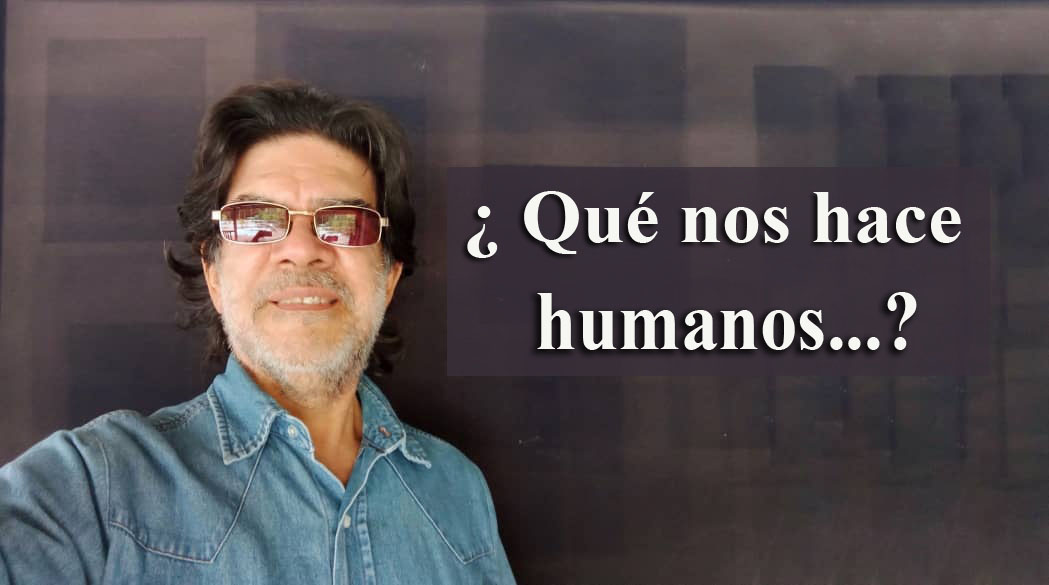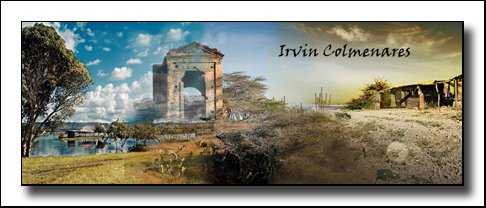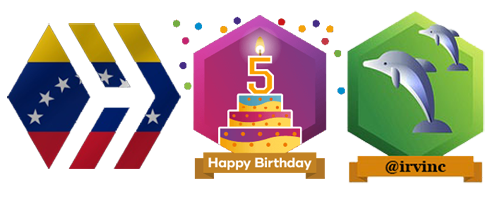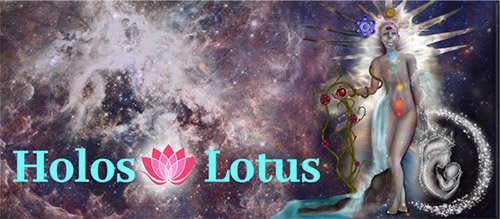
Saludos. Los amigos de @humanitas nos dejan una interesante iniciativa para reflexionar sobre aquellos aspectos que constituyen nuestra humanidad. Un tema que sin duda puede ser abordado de muchas maneras y que rebasa ampliamente las limitaciones de una publicación como esta. Les comento…
La pregunta por la especificidad de nuestra especie está en los orígenes del pensamiento filosófico. Grandes pensadores como Aristóteles o Platón sintieron la curiosidad de indagar sobre qué era aquello que nos distinguía del resto del reino animal, vegetal o mineral.
Dos conceptos predominaron largo tiempo en la historia del pensamiento: somos humanos porque tenemos “razón” y porque tenemos “alma”. Pero la significación de ambas ideas ha variado en el tiempo con relación al momento en que fueron formuladas por aquellos geniales hombres.
Comparto la perspectiva de los que sostienen que lo que nos hace humanos es nuestra capacidad para crear una “cultura”, que sería un poco equivalente a decir por nuestra capacidad de hacer “historia”
Ninguna otra especie de las tantas que habitan nuestro planeta, algunas de ellas mucho más antiguas que nosotros, tiene conciencia de cómo se ha dado su devenir. No pueden establecer referencias entre un antes y un después. No tienen la capacidad de sumar el conocimiento producido para avanzar. No pueden crear cultura.

Los humanos somos los únicos que podemos tomar el conocimiento creado por los que nos antecedieron para mejorarlo, ampliarlo, descartarlo o superarlo. No estamos condenados a comenzar siempre desde cero ni a repetir los mismos errores. Por eso podemos dar fe de nuestra evolución desde la época de las cavernas hasta este momento de la inteligencia artificial y la conquista del espacio.
En esa capacidad de crear cultura están implícitos una serie de aspectos que también son exclusivos de nuestra especie. Así por ejemplo, tenemos la idea de trascendencia, esto es, que podemos pensarnos más allá de nosotros mismos y de nuestra finitud. Podemos pensar que nuestra vida tiene un propósito y que deberíamos dejar el mundo mucho mejor de como lo encontramos. También podemos pensar en algo llamado Dios, un ser más grande que nosotros, algo tan grande que nos permite explicar un asunto tan difícil como lo es el origen de los tiempos.
De igual modo nuestra razón nos permite crear consenso sobre códigos morales y éticos que permitan una convivencia más armoniosa. Es por eso que hemos avanzado sustancialmente desde la idea de que el mundo sea gobernado por los más fuertes hacia otra más humana que sostiene que todos debemos tener los mismos derechos y un trato legal igual, independiente de creencias, género sexual o posición económica.
Otro aspecto que sin duda también nos distingue de las otras especies es la singularidad de nuestra “mente humana”. Con ella tratamos, de la mejor forma posible, de poner orden en una realidad caótica.

Pero la confianza en nuestra mente nos ha hecho prepotentes y presumidos. Tenemos tal confianza en ella que no reparamos en que sus conclusiones pueden ser erróneas. Es más, si fuésemos menos presumidos tendríamos que partir de la premisa de que el error está presente en toda nuestra percepción de la realidad.
Es un asunto que las neurociencias de nuestro tiempo han estudiado muy bien. Al estar condenados a una percepción muy limitada, parcial y fragmentada siempre nos creamos una imagen de la realidad bastante subjetiva, en cierto modo es solo una construcción personal, y sin embargo, no le damos a eso la importancia que tiene. Quizá por eso creamos problemas tan grandes como el cambio climático.
La pregunta por lo que nos hace humanos cobra mucha relevancia en nuestros días. Desde hace algunas décadas el pensamiento transhumanista ha ganado mucho espacio y cuenta con seguidores muy poderosos.
Esta corriente de pensamiento ha tomado conciencia de nuestras limitaciones como especie y se ha propuesto superarlas creando seres híbridos, una mezcla de humanos y máquinas. Para ellos todo lo que se puede rescatar de nuestra condición humana reside en nuestra mente y el ideal de sus propuestas es crear una máquina inmortal que pueda albergar la mente humana, la que pudiera ser transferible de unos seres a otros.
Pueda ser que a alguno esto le suene a película de ciencia ficción. Pero si revisan en internet podrán encontrar fácilmente las investigaciones que pretenden hacer realidad lo que expresé en el párrafo anterior. El asunto puede ser realmente peligroso para la especie humana.
Como siempre he disfrutado escribiendo la publicación. Una vez más agradezco a los amigos de @humanitas por crear estos espacios para la reflexión. Para darle continuidad a la iniciativa invito a la amiga @slwzl.
Gracias por tu tiempo.


Greetings. The friends at @humanitas leave us with an interesting initiative to reflect on those aspects that constitute our humanity. A topic that can certainly be approached in many ways and that goes far beyond the limitations of a publication like this one. Let me tell you...
The question of the specificity of our species is at the origins of philosophical thought. Great thinkers such as Aristotle or Plato were curious about what distinguished us from the rest of the animal, vegetable or mineral kingdom.
Two concepts predominated for a long time in the history of thought: we are human because we have "reason" and because we have a "soul". But the significance of both ideas has varied over time in relation to the time when they were formulated by those brilliant men.
I share the perspective of those who maintain that what makes us human is our ability to create a "culture", which would be somewhat equivalent to saying by our ability to make "history".
No other species of the many that inhabit our planet, some of them much older than us, is aware of how their evolution has taken place. They cannot establish references between before and after. They do not have the capacity to add up the knowledge produced in order to advance. They cannot create culture.
We humans are the only ones who can take the knowledge created by those who came before us to improve it, expand it, discard it or surpass it. We are not condemned to always start from scratch or repeat the same mistakes. That is why we can attest to our evolution from the time of the caves to this moment of artificial intelligence and the conquest of space.

Implicit in this capacity to create culture are a series of aspects that are also exclusive to our species. For example, we have the idea of transcendence, that is, that we can think beyond ourselves and our finitude. We can think that our life has a purpose and that we should leave the world much better than we found it. We can also think of something called God, a being greater than ourselves, something so great that it allows us to explain such a difficult matter as the origin of time.
In the same way, our reason allows us to create consensus on moral and ethical codes that allow a more harmonious coexistence. That is why we have advanced substantially from the idea that the world is governed by the strongest to a more humane one that holds that we should all have the same rights and equal legal treatment, regardless of beliefs, gender or economic position.
Another aspect that undoubtedly also distinguishes us from other species is the uniqueness of our "human mind". With it we try, as best we can, to bring order to a chaotic reality.
But our confidence in our mind has made us arrogant and conceited. We have such confidence in it that we do not notice that its conclusions may be wrong. Moreover, if we were less conceited, we would have to start from the premise that error is present in all our perception of reality.
It is a matter that the neurosciences of our time have studied very well. Being condemned to a very limited, partial and fragmented perception, we always create a quite subjective image of reality, in a way it is only a personal construction, and yet, we do not give it the importance it has. Maybe that's why we create such big problems as climate change.

The question of what makes us human is very relevant nowadays. For some decades now, transhumanist thinking has gained a lot of ground and has a very powerful following.
This school of thought has become aware of our limitations as a species and has set out to overcome them by creating hybrid beings, a mixture of humans and machines. For them everything that can be rescued from our human condition resides in our mind and the ideal of their proposals is to create an immortal machine that can house the human mind, which could be transferable from one being to another.
This may sound like a science fiction movie to some of you. But if you check the Internet you can easily find research that pretends to make what I expressed in the previous paragraph come true. The matter can be really dangerous for the human species.
As always I have enjoyed writing the publication. Once again I thank the friends of @humanitas for creating these spaces for reflection. To give continuity to the initiative I invite friend @slwzl.
Thanks for your time.
Translated with www.DeepL.com/Translator (free version)








Comunidad Be Entrepreneur

Un tema que nos llama a la reflexión, justo hoy en día que navegamos por el mundo de la inteligencia artificial... da que pensar. Tu post excelente. Muchas gracias por permitirme dar continuidad a la idea con mi pensamiento.
Por los momentos te envió un abrazo inmenso.
Saludos con cario amigo querido.
Sí, es un tema que da para pensar. Muchas gracias por pasar y comentar. Un fuerte abrazo desde Maracay estimada @slwzl.
Muchas gracias por el apoyo.
Excelente tu post muy completo te felicito es algo para reflexionar, yo me pongo a pensar que será del futuro de esta nueva generación con todo esto de la inteligencia artificial.
Que tan humanos llegarán hacer
🌹🤗🤗❤️❤️❤️❤️❤️
Me alegra que te haya gustado la publicación. Es una buena pregunta la que dejas, qué será de lo humano. Muchas gracias por pasar y comentar estimada @yraimadiaz. Un fuerte abrazo desde Maracay.
Gracias amigo feliz tarde😉🌷😉❤️😉😉😉
Muy buen post, saludos.✨
Muchas gracias, me alegra que te haya gustado. Un fuerte abrazo desde Maracay.
Como siempre, reflexiones muy valiosas estimado @irvinc
¡Saludos! #Humanitas